The comfort of rereading old books
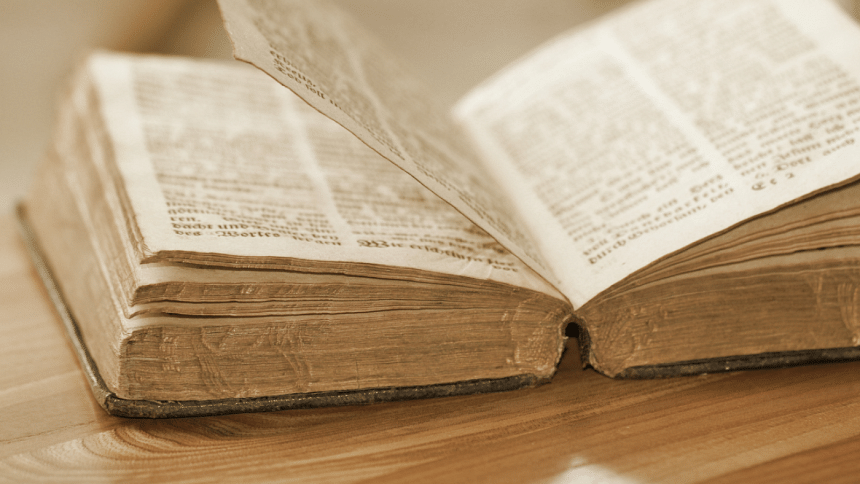
In a world that moves at a frantic pace, many of us find solace in the simple pleasure of building our own personal sanctuaries of knowledge and imagination. Our bookshelves become windows to other worlds, filled with stories yet to be savoured.
I have an ever-growing pile of books that I've yet to begin for the first time. It's a pile made up of good intentions, overexcited and impulse buys, misguided gifts, and dry but useful nonfiction that I feel like I should get around to at some stage. It's full of the sort of books that get sidelined when something else jumps to the front of the queue by virtue of hype, zeitgeist, or through some sort of academic or professional obligation.
Nearly every other day, I eagerly await the arrival of a book-shaped, bubble-wrapped package, the ring of the doorbell signalling another chapter about to unfold. Those parcels promise countless hours of escapism. And by the time the sun sets, I descend into the rabbit hole of online book recommendations once again, endlessly adding titles to my virtual shopping basket, captivated by the magic they hold.
My bookshelves fatten. I open each package delicately to be greeted by the intoxicating scent of fresh paper and ink, a fragrant reminder of the countless worlds awaiting exploration. Yet, when I have ample time to lose myself in the pages, I complain that I have nothing to read.
While I was able to get a lot of reading done in the early days of lockdown, that drive is now gone. As I quietly stare at the ceiling of my room, I crave new experiences. However, I am apprehensive about delving into new worlds in literature.
I want words and stories I can trust to safely transport me somewhere as reassuringly familiar as a hug from a good friend. I want to get lost in dialogue with familiar characters, see in my mind's eye familiar places, and feel prepared for endings with prior knowledge. I don't want unpredictability. I want certainty. I want comfort.
For every victory and challenge in my life, there is a book that was there for me. For us bibliophiles, books are interwoven through our lives like a thread, pulling memories together.
I have always loved Little Women (1868) by Louisa May Alcott. I am not as dramatic and feisty as Jo March, but I see myself in her bookish and imaginative side. During my girlhood, I discovered a profound sense of self-acceptance as I realised that it was perfectly alright to be true to myself, because Jo was too. Now, at the start of my 30s, as I continue to navigate the labyrinth of self-discovery and contemplate my purpose in life, Jo comes back, fiery and determined as ever, offering a guiding light. She serves as a reminder that even as we embrace new responsibilities and grapple with societal expectations, we can remain authentic to our core. We can dare to dream, to question whether our desires will ever be realised, all while excelling in our roles as devoted sisters, wives, daughters, and mothers.
I know that Little Women will always be a book I come back to for comfort, guidance, and enjoyment. It will be a book that will still teach me, even as I age. And I hope I never cease to find a piece of myself within it.
Similarly, I return to the genteel settings of 19th century England of Jane Austen's novels time and again to witness the pursuit of true love, challenges of courtship, and ultimate triumph of love over societal obstacles. Her strong, intelligent, and relatable heroines, from Elizabeth Bennet in Pride and Prejudice (1813) to Emma Woodhouse in Emma (1815), are sources of solace and inspiration for me in how they face adversity, learn from their mistakes, and ultimately find happiness and fulfilment.
After binge-watching Season 2 of Shadow and Bone, the Netflix adaptation of Leigh Bardugo's Grishaverse novels, I recently found myself revisiting Six of Crows (Henry Hold and Co, 2015). Although I read the book six years ago at the age of 24—considerably older than the characters—I still consider it one of the most profound reading experiences of my life. The story primarily unfolds in Ketterdam, a city that treats capitalism as a fervent belief. Bardugo delves into the perils of a society that places money above all else, resulting in characters entangled in gangs, engaging in prostitution, and plagued by illness and addiction. Despite the story's high fantasy elements, Bardugo masterfully crafts a grimy world where her teen-aged protagonists are forced to grow up faster than most, and she writes the psyche of each character incredibly well.
Upon rereading it, I was astonished at how I still care about all the characters as much as I did when I first read it. Not a single one of them is under-developed or has confusing motivations—I feel for and grieve with each and every one of them, Inej, Kaz, Nina, Matthias, Jesper, Wylan, and even Kuwei in the sequel, Crooked Kingdom (Henry Holt and Co, 2016). I understand their internal struggles and desperately want to see them succeed.
Revisiting our favourite books from our adolescence is a tricky thing, though. They are, after all, novels we bonded with during a very impressionable time in our lives. We are often not willing or even able to see their faults. Even in hindsight, our judgement is coloured—by nostalgia, by comfort, and by the sense that these books are old friends.
My best friend that I shared Twilight (Little, Brown and Company, 2005) with was one of the first people to befriend me in Qatar, when I moved there from Bangladesh for high school. When we first met, he was an avid reader, and so, I got him into the series. We bonded and became closer through our discussions about those books. We went to the New Moon movie premiere together. At one point in my Twilight-crazed days, I collected lavishly illustrated books that were behind-the-scenes guides to how the movies were made. I cut out pictures of the cast from various photoshoots and taped them to my walls. My bedroom was covered in Twilight posters and magazine clippings. Upon discovering that the initial 12 chapters of Midnight Sun, a retelling of Twilight from Edward Cullen's viewpoint, had leaked online, I eagerly delved into their contents.
But as I grew older, I realised that Bella Swan's existence seemed to revolve around her romantic relationship with Edward, and her agency and personal growth were overshadowed by her obsession with him. Perhaps that is why I wasn't very excited when Midnight Sun was officially published in 2020. Although it is sitting on one of my shelves, I haven't quite made up my mind on whether I am going to read it. Nevertheless, while I have many issues with Bella's character, the Twilight series remains a formative part of my journey into reading the way I do now.
I often feel overwhelmed by the sheer quantity of new books that I still want to read—so many stories, so little time—and understand that this is an ambition that rereading can only delay. But going back to previously read books can be just as valuable as picking up new ones, to revisit old ideas and favourite fictional friends, and to re-experience the literary touchstones that help make us who we are.
After all, songs and albums don't have a limit for the amount of times we listen to them. And neither do books. They're just a paper-bound soundtrack to your life. Go ahead and hit play.
Shababa Iqbal is a journalism graduate from Independent University, Bangladesh (IUB), who likes Jane Austen's novels and Disney movies. Email: [email protected].
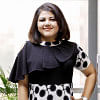
 For all latest news, follow The Daily Star's Google News channel.
For all latest news, follow The Daily Star's Google News channel. 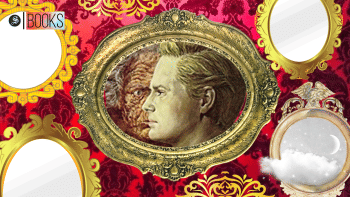
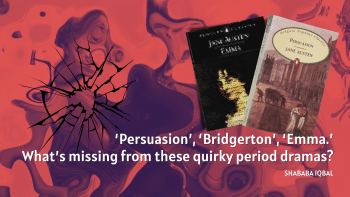




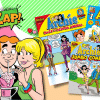
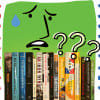



Comments